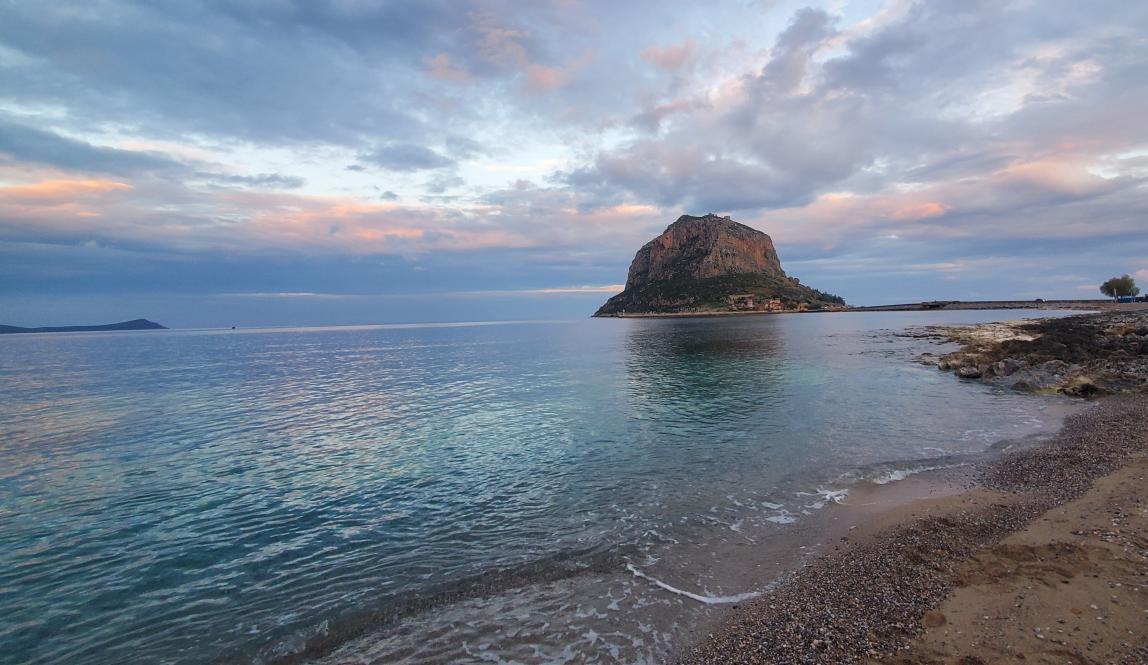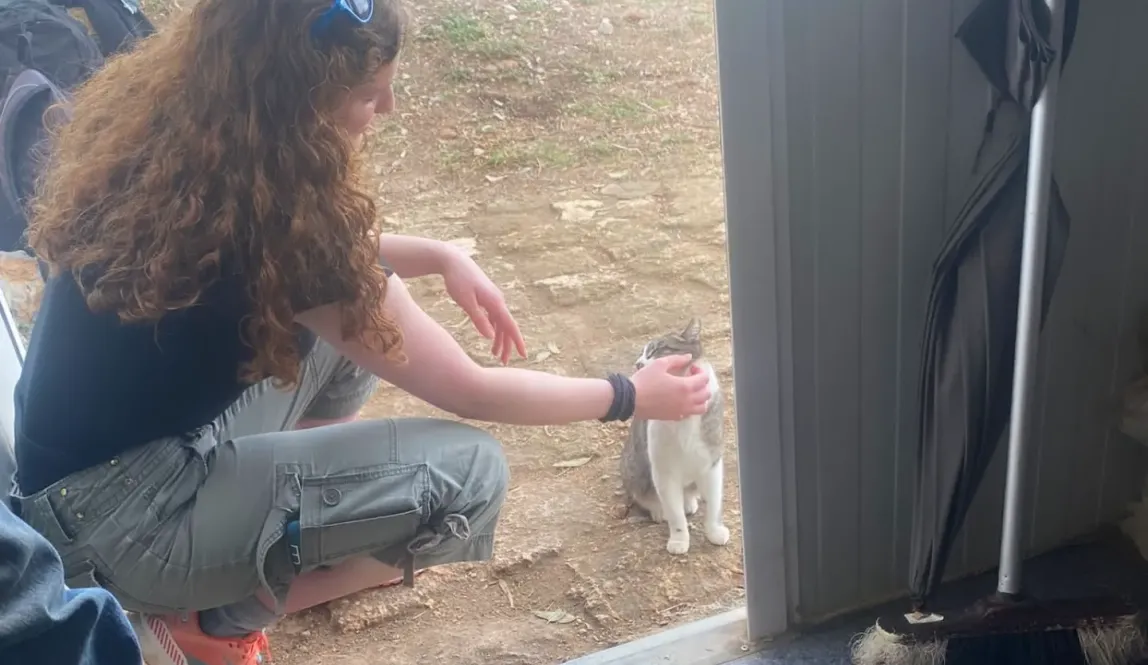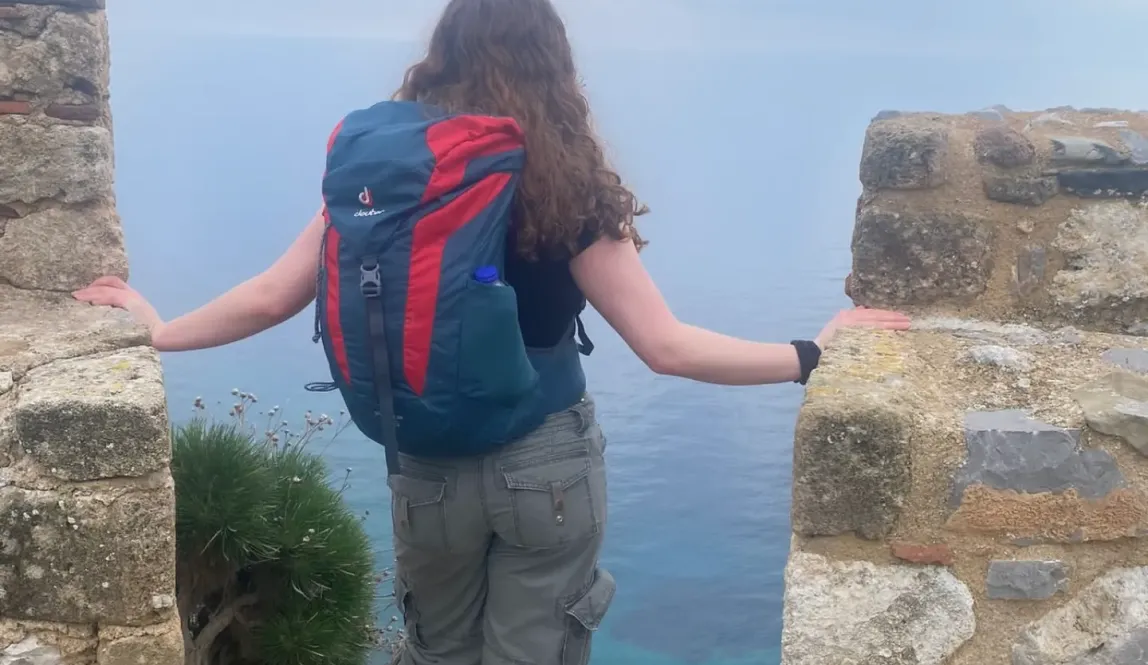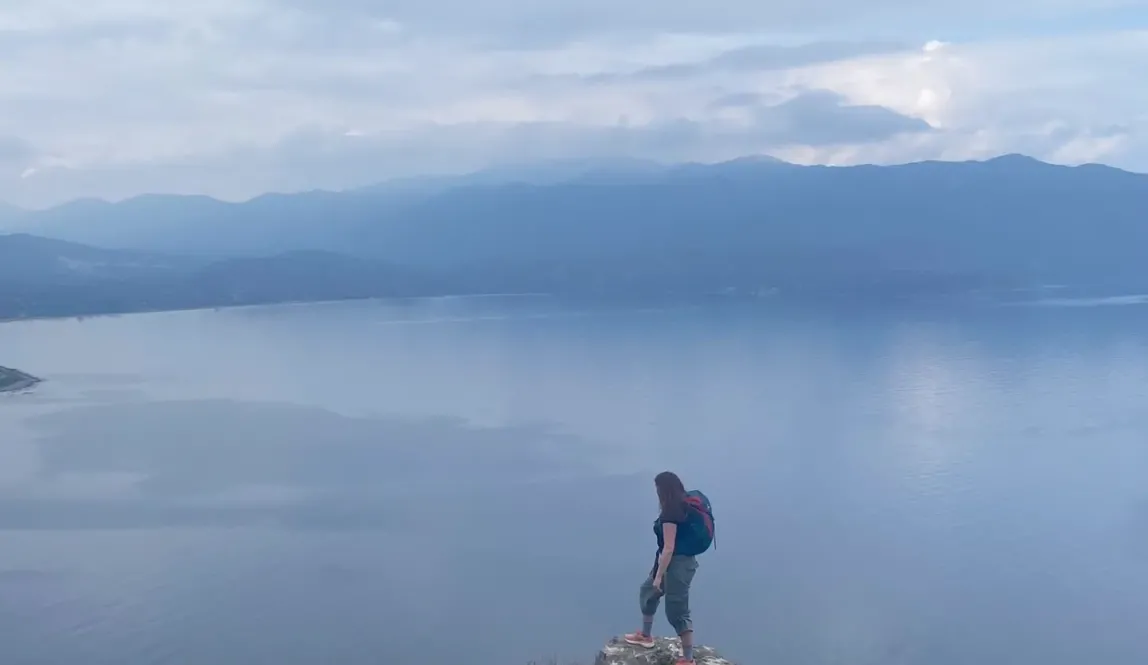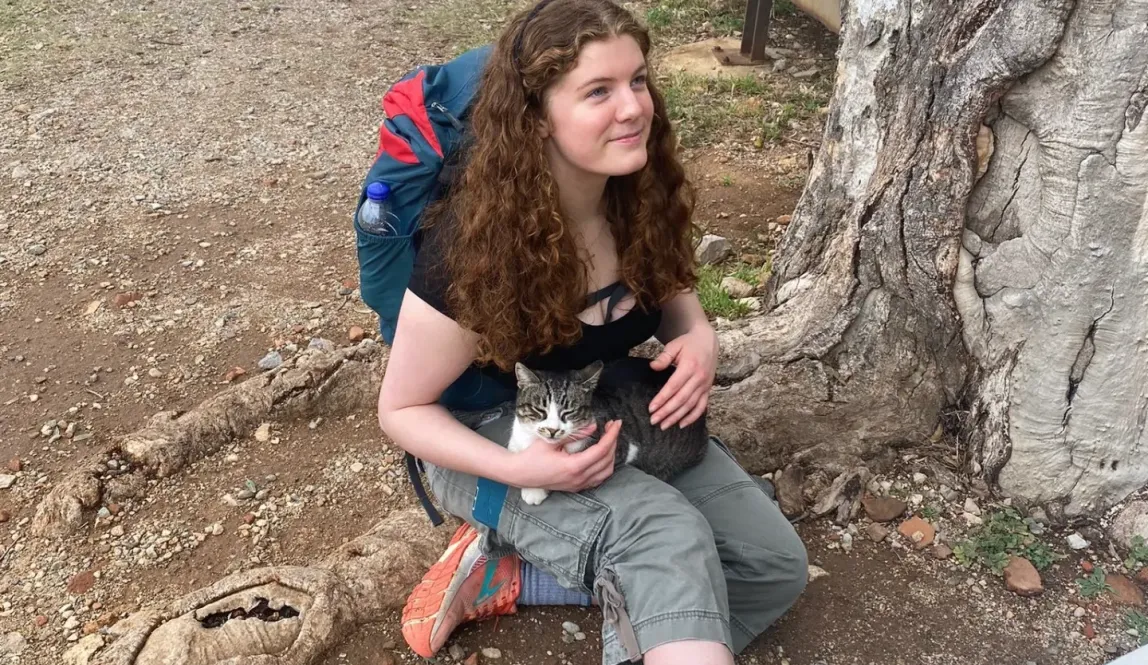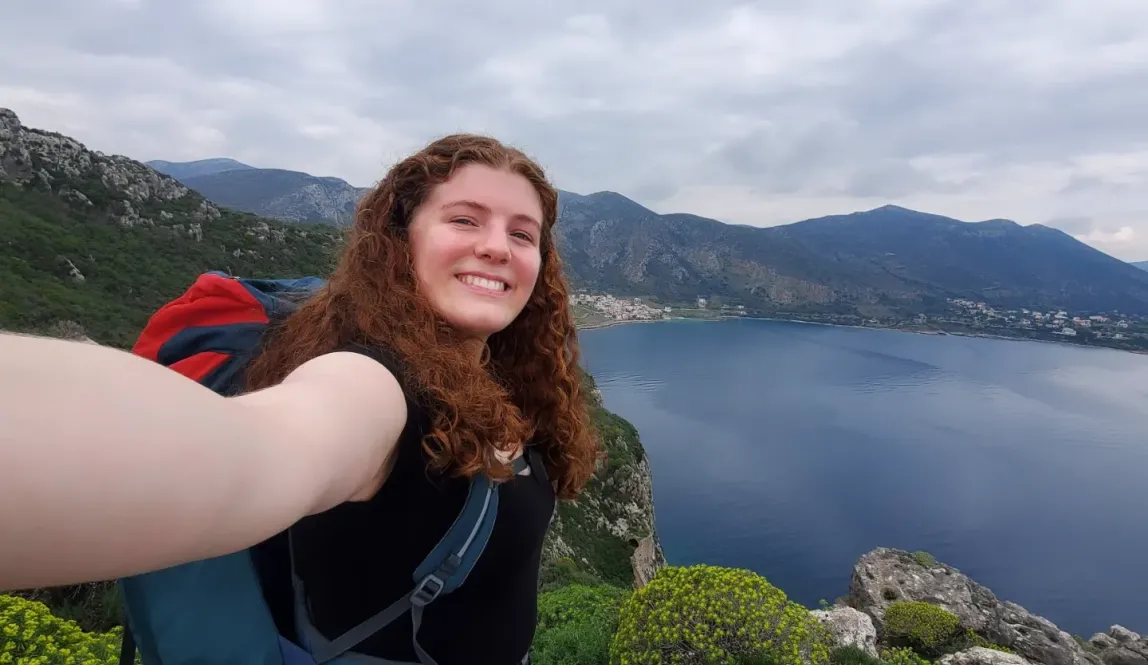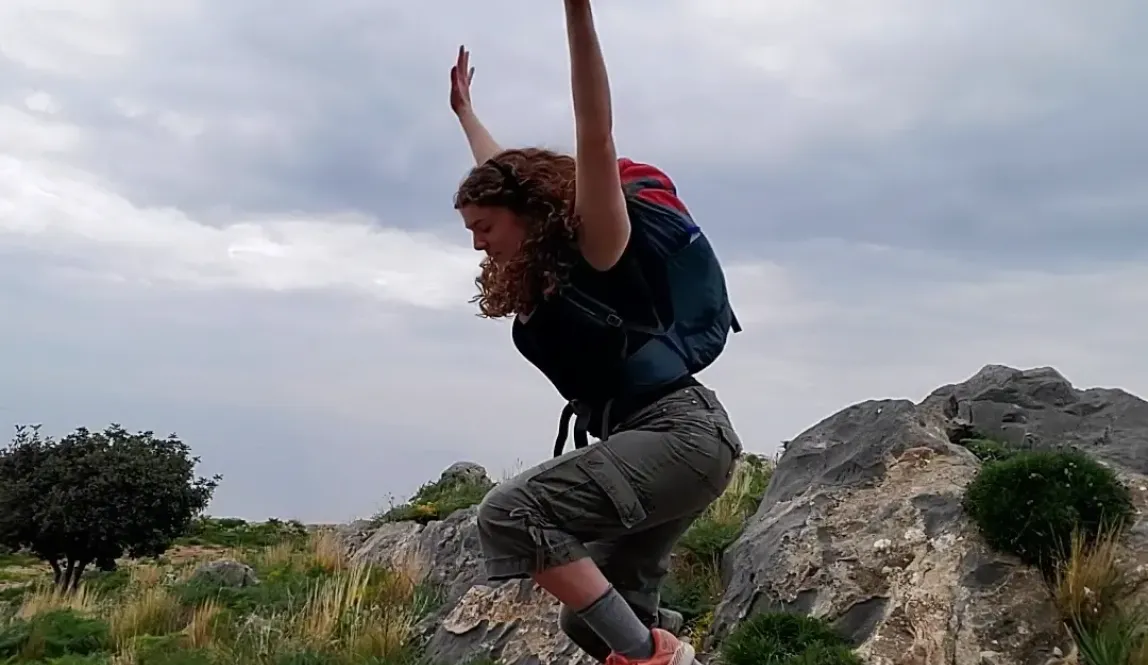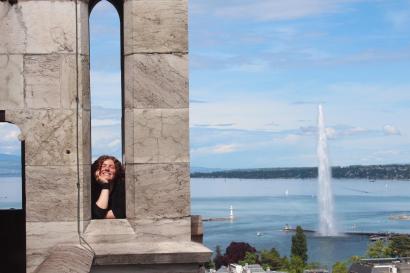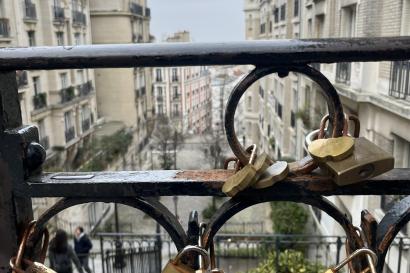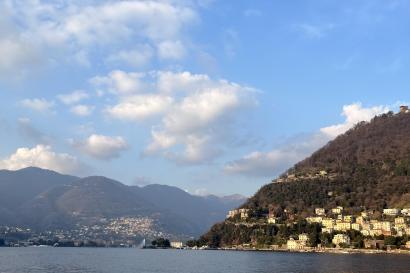Bonjour, mes cheris!
Welcome to my blog! If you aren’t already familiar with me, my name is Paikea and I am currently in Paris!
Le sujet du jour is traveling, and thoughts and experiences.
Avant tout, I want to clarify that everyone’s experiences are going to look and feel different depending on your personal circumstances. Where you go, your financial circumstances, your own wishes for what vacations look like, etc will affect how you make your choices. Also, part of this blog will feature heavy discussions I felt the need to address because I think it is a very real and very important moral quandary one must face when traveling abroad. It will feature some more graphic details so if you are squeamish or dislike topics of poverty, please feel free to skip the section enclosed by lines.
D’abord, You will get a week or so to vacation, and you can either rest in your host country or travel abroad. Or do a bit of both. In my travels, I chose to explore Greece. I split my time between Athens and Monemvasia and experienced a lot of different types of transportation to do so. I also met many different people, explored different cultures, and tasted different foods. It was overall, an extremely new experience for me. The first thing I want to discuss is transportation and housing because this is incredibly important when traveling as you must be familiar with the methods of transportation of the country and how their lodgings function to avoid being scammed or placed in a spot of danger. Greece has planes, ferries, buses (long and short trips), taxis, and your regular forms of personal transportation. For flying, the major international airport is of course, within Athens, but getting to the main part of the city requires a taxi which will be around 45 euros in the day and 60 at night. Interestingly enough, hostels will offer to book taxis for their residents but if you want to save a bit of cash, you can also book them on Uber (which avoids the dilemma of paying in cash as many do not have card readers on hand). Ferries are a hassle because they depend on you getting there via taxi or a rented car, and since they are car ferries you have to deal with all that entails. Mixed modes of transportation tend to be more expensive and more complicated as the timetables can be convoluted and difficult to manage. The KTEL system is a bus system that covers a large portion of the country, but buying tickets can be incredibly difficult as sometimes they don’t open up the purchases for certain trips until a week before you need to travel, and for many of the location, bus transfers are absolutely necessary. I also needed to wait until I arrived at my destination to purchase return tickets, and even then I had no idea what the travel itinerary was going to look like and involved giving my ticket to anyone who looked like they had some authority and pleading to some higher power that they were going to at least take me to a station that got me closer. Public transportation within the city is not unlike the buses in Paris, although I will never even come close to guaranteeing they operate to the same efficiency standard. However, walking is always an option, and one I highly recommend as it allows you to see more of the city you are exploring and lets you get some exercise in. But knowing the city and how safe certain neighborhoods are is essential for this option as I was uneducated about some neighborhoods and completely fumbled the bag so to say when I went wandering in Northern Athens and encountered at least 8 to 10 highly disturbed and potentially violent individuals (I hate to sound cruel or blunt, but this is an incredibly real reality in many major cities and ignoring it or hiding its true nature can cause more harm than good). Of course, none of it was new and I was able to save myself a great deal of pain by knowing to stay in crowded, open spaces near the visible police. Be familiar with safety tips because the last thing you want to do is get stranded where you don’t know what to expect or at least prepare yourself for the unexpected. Then there is also the matter of planes: do not, and I repeat with complete urgency, do not sleep at an airport for a 12-hour layover. It doesn’t matter where it is at because even Zurich has incredibly uncomfortable seats and the temperature controls are not very nice. If you have to, bring something fluffy you can sleep on because having 12 hours to sleep some of the worst sleep of your life does not leave you prepared for any potential dangers. I was lucky this happened on the way back so I could muster up the standard Parisian “don’t talk to me, don’t touch me, don’t even look at me” face and push myself to make it home relatively sane.
Deuxièmement, it is vital that you are prepared for instances where you cannot speak the local language and they cannot speak your own, and that you be prepared to navigate the tangible and intangible structures. In Athens, it is quite common for the majority of the working population to be accustomed to tourists and be quite willing to speak in English. But within public transportation outside the city and regions outside the city, many people are unable to speak English, and signs, directions, and menus will no longer have their English translations readily available. If you have to buy more data to handle relying on Google Translate, do so, or at least make sure you are equipped with some rudimentary understanding of the alphabet so you can at least piece together where you are if your phone fails you. Do not become reliant on the kindness of strangers, because it will never be a sure thing, and dependency on the unknown is always your last resort. If you don’t understand something and you don’t need to (for example, someone is yelling at you from across the street for no particular reason, or someone is trying to sell something to you or forcibly hand you something) just avoid the situation entirely and walk on as if you haven’t heard a thing. Even when you do know the language, it is usually better to avoid any interactions you did not initiate. Furthermore, in some countries in particular, there are no options for alternate forms of transportation or movement. Even more modern Greek cities have no escalators, no elevators, and no wheelchair accessibility. The older cities barely have options for cars, bikes, scooters, or other alternate means of transportation. There are steep hills, incredibly narrow doorways, and uncomfortably large steps even for someone moderately athletic and prepared for the journey. Even in more accommodating spaces, beds can be incredibly narrow, and showers can be low (I have smacked my head countless times on shower heads, and very much felt like Buddy the Elf. I am for the reader’s knowledge, a shockingly average 5’7” or roughly 173 cm) and also incredibly narrow limiting you from even crouching down to grab a dropped hairbrush (I have bruises on my knees and elbows from forgetting the existence of a wall). Alleyways that are necessary for getting to a restaurant or to the sea will be so small that only one person can get through, and elevators can made to hold one person and maybe their luggage. Before traveling, researching how to work around these problems, to prepare for them, or to simply avoid them by changing destinations is vital to ensure a comfortable stay.
Troisièmement, poverty exists everywhere. It is not some phenomenon that only occurs in countries you have never thought of visiting. It exists in tourist hotspots, in beach towns, and in your hometown, it permeates the fabric of life. Sometimes, it is worse than you can even realize. This is not to criticize or accuse the reader. This is a genuine and all too honest reflection from someone who was shocked herself by how poverty can manifest itself. It isn’t the homeless in New York or Boston who beg on the sides of roads with cardboard signs or in shopping districts with empty coffee cups. It isn’t the people who walk through the Paris metro cars saying blessings to anyone who feels like giving up 20 cents, or the people who sleep under the bridge on the way to the IES Abroad Saint-Amand site. It can be much, much worse. I don’t know if you are familiar with it personally, or if it only exists on the screen for you as it did me, but now I have seen I cannot forget it and I feel the need to discuss it not out of a sense of moral virtue, but simply to prepare you for what you may see, and to discuss my personal reflection of the issue. I will warn you again that I will discuss graphic situations of poverty, so please take what I say into consideration and move on if you feel unwilling or incapable of further reading.
In Athens, poverty looks similar to what it might look like in New York, Paris, or Buenos Aires. You have the homeless who sit on sidewalks or sleep under coverings or to the sides of scaffolding. You see those who are unfortunate enough to be plagued by deliriums who talk to open air, scream at you from their haunts, or lose themselves to whatever is happening in their heads. There is addiction, suffering, and anger. What follows might not be unheard of in the cities I mentioned previously, but as someone who didn’t necessarily believe they led a sheltered life, it was my first time encountering something so horrible. For the first time in my life, with my own eyes and not in documentaries or newsreels, I saw women, men, and children covered in burn scars. I saw a woman, exhausted and emaciated, leaning on the side of a building, her unmarred side resting on the cool stone and her pitted, deep scars exposed to the Athenian sun. Her clothes were hanging off her, and had I not drawn my gaze from the burns on her scalp down to the nubs of her fingers, I might not have realized the color of her hair. She wasn’t even trying to ask for money or sympathy, she was simply resting on the ground, a broken plastic cup at her side by her skeleton-thin hand. Not 4 days later, I saw a man with scars covering his entire torso, so vicious that one eye was fused shut and the other was red and swollen in its socket as the skin of his eyelids drooped and refused to close. His mouth was open unwillingly, and the scarring I assume continued past what his clothing covered. He was so thin I might have mistaken him for a child, although truthfully his emaciation and his facial scarring hid his true age. He sat cross-legged on the curb, and as the crowds passed him I couldn’t help but stare as he repeatedly fell back on his back, as though he lacked the energy to withstand the wind from the moving pedestrian traffic. He held his cup in his hand, but I don’t know if he was aware enough at the time to realize that nothing was in it, and no one was paying attention other than those who were so shocked and afraid we maintained our distance as if his affliction was contagious (I feel intense guilt for this reaction, but I refuse to lie and say I helped when I know I offered him nothing). These scars were old, their sagging skin and protruding bones were not recent, this was the work of years of starvation and pain. There was also fresh pain. A man sat on the side of a road, and I will honestly say that I cannot remember a thing about what he held in his hands, his clothes, or the features which defined him as something other than in pain. What I can remember in perfect clarity is the way sweat beaded on his temples and above his lip in the sunlight despite the relative coolness of the air. I remember the unnatural flush to his face and the puffy, sticky look to his bloodshot eyes. I remember tears sliding down his face. I remember the filthy rags he had pressed to both of his shins and how they were about the size of a paper towel but failed to cover the entirety of the open wound on his leg. I remember these wounds as if I could look down and find them on my own legs. They extended past the boundaries of those rags, and may not have been bleeding but were red and inflamed an inch past the open skin, with the corners crusted and seeping pus in some areas. I remember how he rocked back and forth in pain, and how it looked as though you couldn’t peel the rags away without removing more of his flesh. [I will take a moment to apologize for how much detail I have gone into, but if I am being honest, I will not forget this image for as long as I live, and I need to know that this man’s suffering will at the very least not be forgotten]. The wounds, untreated, were festering and seeping into his blood, and anyone with a pair of functioning eyes could see he was being ravaged by a fever. I walked past this man and all the others numerous times in my stay in Athen and not once did I offer them help. I am not the paragon of moral virtue or charity, but I am not devoid of the intense shame of not having offered at the very least some kindness. Instead, I gawked at these people—not even them really, I gawked at their obvious pain, and stared long enough for these images to be seared into my brain. They were barely human at my first glance, just piles of suffering, and I will never know the people they were because I didn’t stick around long enough to find out. As someone fortunate enough to receive care and love when I got hurt, to see death lingering next to someone isolated in the middle of a crowd, I was shocked into inaction. I could say that these sights were just people feigning their pain, acting for sympathy and money. I could say that my lack of actionable sympathy is because I mistrust those who appear to be in need, and out of a sense of self-preservation. I could be right for all I know (although in these cases probably not the former, and potentially the latter). I also know that just because I walked past them doesn’t mean they aren’t real. People in pain will be everywhere. In your host country, you will most likely see some sort of pain, some person in need. You can give, you can walk past, you can ignore it, that is your prerogative and I would be the highest order of hypocrite if I said you were required to do or feel anything. I do know that on the plane back, when I looked at my life and my current situation, I wish I had given. I wish I had approached them, pulled out cash, and handed it to them, looking in their eyes, and acknowledging their humanity. I wish I had stopped in a bakery, grabbed a sandwich, returned, and given it to them. I wish I had taken that man off the street and tried to save him. Because isn’t that exactly what I am supposed to do? Save those who need saving? Prevent death? I feel shame, because I didn’t only ignore their need for help, I ignored their humanity by hyper-focusing on their pain. I don’t mean to sound preachy or pretentious. I acknowledge only my previous and present thoughts as I contemplate my future actions. I know what I will try to do when I see such pain again. You are free to do whatever you want, feel whatever way, and in no way shape or form is this portion supposed to guilt you into giving away to every beggar on the streets your money. Not all pleas will be genuine and for anyone to ask you to ignore your instincts is absurd. I just wanted to give space on my blog to acknowledge the reality of what we never truly understand to be reality. If you already are acquainted with all of this, then I am stating the obvious, but if you truly have not seen it yet, I only want you to be aware that none of this was hyperbolic or exaggerated. While I may not remember the shirt I chose to wear this morning, I know in my heart that for many years, I will remember exactly what these souls looked like as they sat on the ground, forgotten in the rush of the traffic. Part of me wants to make up for my inaction by dedicating a written memorial to the suffering I witnessed, the other parts of me simply want to help all those unfamiliar (just as I was) to prepare mentally for what they will witness, so that whatever choice they make (even if none is made), they made it prepared.
Enfin, I know the third section was filled with difficult topics and realities, but I hope my honesty helped prepare you for whatever adventures you will take. I want to remind you that it is not random, individual actions that determine your character, but the habits you develop over your life and the actions you continuously implement from your will and intention that define you as a person (at least I hope so). I also want to share that even with all the suffering in the world, there is also joy and simplicity. In Athens, I also saw the most beautiful sunsets I have ever seen, and the waters of Monemvasia were so clear and cool I felt like I had cleansed my very soul by being in the water. I have seen trees thriving in ruins younger than them, and I have tasted the love of a farmer who cared for his soil in the fruit of the orchards. I have witnessed the kindness and enjoyed the hospitality of complete strangers, and felt the ties of companionship and family to people I have spent less than two hours with. Life is sweet, beautiful, and full of wondrous things, but it is so brief and you never know how brief it will be: so enjoy all the moments you are given and try to make them mean something to you. I am slowly learning too. Good luck fellow travelers, and I will see you in the next one!
À la prochaine!

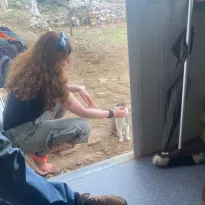
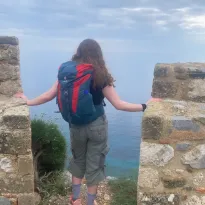
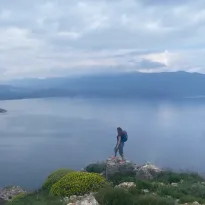
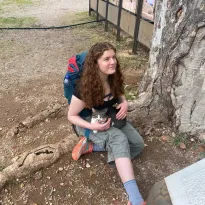
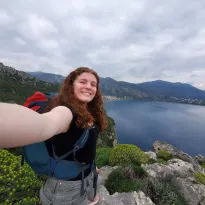
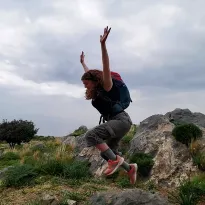

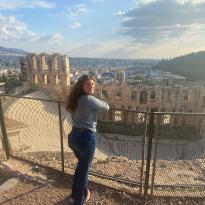

Paikea Houston
I am a person who loves her family, good food, and sunshine. I always believe in trying things at least once for failure is never certain. I'm here to take you along with me to travel further, work harder, and dive headlong into the great wide world!
